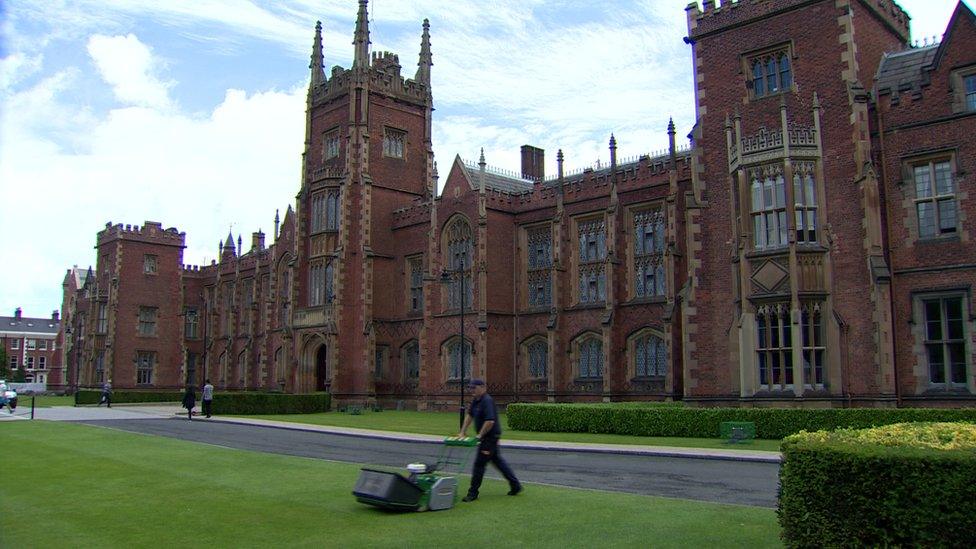University 'grade inflation' to be tackled as first-class degrees rise
- Published

More than a quarter of students are now graduating with a first-class degree
A surge in the number of first-class degrees awarded at university has led the government to bring in measures to tackle so-called grade inflation.
Figures suggest that degrees are being "marked up", meaning students are leaving with a higher grade than a comparable student in previous years.
More than a quarter of students now graduate with a first-class degree.
Universities could now be penalised in the government's rating system if they award too many top grades.
"When you look at what makes our universities so prestigious, it comes down to the value of our degrees," said Universities Minister Sam Gyimah.
"The value of those degrees is threatened by grade inflation and that is a problem for students, employers and the universities themselves."
Figures released by the Higher Education Statistics Agency show that 26% of students graduate with a first-class degree, up from 18% in 2012-13.
The increase is part of a longer term trend. In the early 1990s, only about 8% of students achieved a first.
Universities are their own degree-awarding bodies and decide their own grades, but the government plans to use its rating system, the Teaching Excellence and Student Outcomes Framework (TEF), external, to discourage lower standards.
Introduced in 2017, the TEF ranks universities as gold, silver or bronze by assessing multiple factors such as the student experience and quality of teaching.
A panel of experts will review evidence on whether each university is awarding excessive numbers of firsts and 2:1s.
'Working harder'
A spokesman for Universities UK, which represents higher education institutions, said it would propose its own measures to prevent grade inflation.
"It is essential that students, employers and the public have confidence in the ongoing value of a UK degree," he said.
But he said there could also be legitimate reasons for the rise in top degrees, including greater investment in the quality of teaching and technology.
Some students say the fees of about £9,000 a year introduced in 2012 mean that many are working harder to ensure they get value for money.
Sophie Wilson, who graduated last year with a first in English Literature from Sheffield University, said she worked from 9am to 8pm most days, despite struggling with depression.
"I think it's ridiculous that it's being devalued. It's more likely that people are working hard because uni is so expensive these days," she said.
Research in 2014 by Lancaster University found that improvements in degree grades were in line with the rising quality of the intake, as shown by A-level grades.
The only sign of "leniency" was among top universities, which researchers found were 8% more likely to award higher degrees than they were in 2005, after taking into account the improved student intake.
But others say that with little oversight of their degree-awarding powers, universities have an incentive to offer high grades.
"There are people who think the system isn't as robust as it might be," Nick Hillman, head of the Higher Education Policy Institute told the BBC last year.
- Published26 July 2018

- Published21 July 2017

- Published7 June 2018
